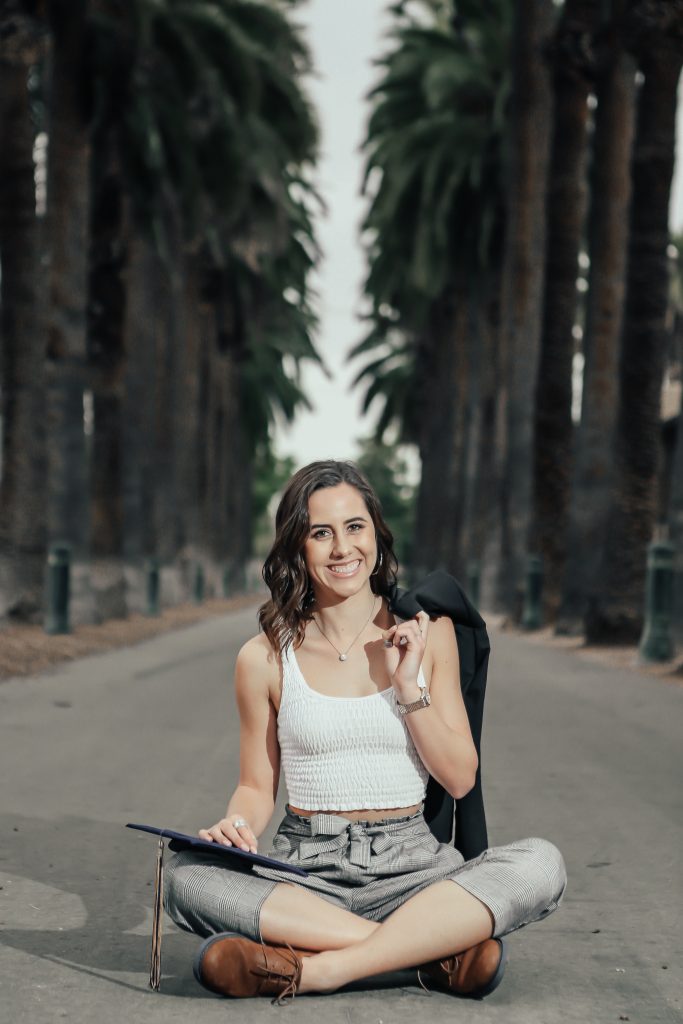The Do’s and Don’ts when Applying to Grad School – From an Alumni’s Perspective
When I started at CBU I knew that I would eventually be using what I had learned, accomplished, and acquired in order to step forward into a graduate program for speech therapy. Although I did not know what that would look like, I would love to share the do’s and don’ts of applying to grad school. The things worth stressing over and the less important things.
Fortunately, I have been given the opportunity to attend Boston University.
First things first, no one actually knows what each school is looking for— not exactly that is. You have no idea if someone of a similar background as you will be applying to one of your chosen universities or if you’ll be the unicorn of the group. Yes, generally speaking, schools look at a combination of your GPA, GRE, letters of recommendation, volunteer work, extracurricular activities, and your personal statement. But what combination? One of the best pieces of advice that I held onto during this process was from a loyal teacher who told me to “shoot for the stars.”
I applied to some of the top schools in the nation, some of the smallest, some of the newest, and some of the oldest.
Here’s what I learned from all of it…
THE RESUME –
As far as building a resume, I would recommend staying involved in some sort of extracurricular activity. Try to find an opportunity that showcases your personality or a position that is applicable to your field of study. Remember, it doesn’t have to be a speech therapist assistant match to be beneficial.
I was a full time student-athlete for most of my college career so any other extracurricular activities I did were over summer. Even then, I have been fortunate enough to have gone overseas for medical and sports related trips. I also took a hospice volunteer position one summer, which significantly built my resume.
Like I said, I would highly recommend finding a volunteer placement for one of your summer options. Again, I will emphasize, it doesn’t have to be working alongside in your specific medical field, but you should be mindful of your volunteer time and how it may assist your career of interest.
THE GRE –
Lots of people stress over the GRE. You should definitely prepare well for the GRE. Study often and take a free online practice exam. From there you’ll know whether you are the person who needs A LOT to improve your score or you will naturally have a thing for it. If you plan ahead and take it early you can find this out and decide how much you want to invest in it. My tip for you all is; don’t stress the GRE until you start studying! Everyone freaks out but every single school is looking for something different and weighs parts of your application in a unique way.
I scored in the 38th and 47th percentile [aka below average]. I will admit, standardized testing is not one of my strengths but I did score much better on the written portion. Unless you’re trying for the number one school in the nation, it does not have to be perfect. Some schools just use the GRE as a hoop to jump through.
GRADES –
Your grades do matter! They will weigh your last 90 units higher but it is a very competitive field. So if you don’t have the grades, your experience should be sublime. Nevertheless, some professors preach that a 4.0 is needed and I know of plenty of students who were accepted within the 3.6 – 4.0 range and even a few with a GPA of 3.2.
LETTERS OF RECOMMENDATION –
Additionally, letters of rec are weighed heavily and universities do not care about what your employer from your former restaurant job will say. They want references from your related field — professors who have gone through this and can attest to your ability to do the same. I would recommend having references from two professors and another of your choice. This is your chance to pick someone who is going to describe you well, outside of the quantitative measurements on your resume.
THE APPLICATION PROCESS –
I would suggest starting applications in the summer or the beginning of the fall semester. I did not begin until the end of October and I finished all of my applications by Thanksgiving break (1.5 month time frame). Additionally, I would advise, applying to a variety of schools and research what they are seeking from each applicant. Before you begin, know what you want in a school. For example; a small cohort, a certain state, a particular clinical placement option, etc.
ADVICE –
Figure out what you value — a strong community, a smaller cohort, private or public university, etc. Next, thoroughly examine your personal statement. Include a bit of your past, present, and future — why you are the person you are, what you value, where you would take the said program, profession, opportunity, etc. Keep your personal statement to about a page or page and a half, unless stated otherwise. Last, make sure you love the field! If you don’t, it will be obvious and those who do will rise above.
OUTLINE OF POINTERS –
- Volunteer
- Prep & take the GRE ahead of time
- Your GPA matters
- Be mindful of who you ask for letters of recommendation
- Start the application process early
- Love the field more than anything!
Riley Phillips
B.S. Communication Sciences and Disorders
